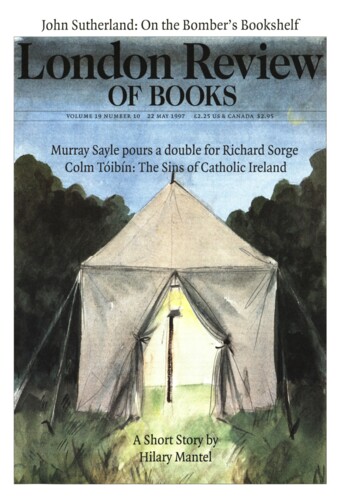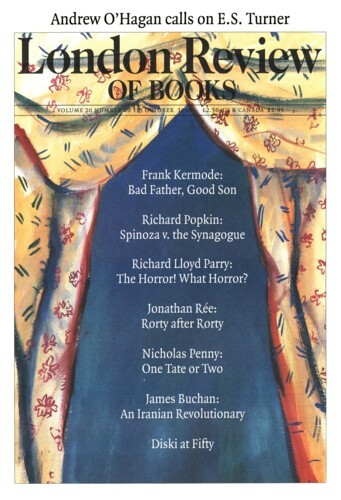Hari Kunzru
Hari Kunzru writes fiction, essays and journalism.
Raving
Hari Kunzru, 22 May 1997
‘Ecstasy’ is a brand name. According to tradition, the tag first became attached to the drug MDMA (3-4 methylenedioxymethamphetamine) some time in the early Eighties, when it moved out of the American psychotherapeutic community, in which it had circulated for over a decade, and into wider use as a recreational drug. The street-dealers needed something punchy, and with its connotations of sexual abandon, the word ‘ecstasy’ propelled the drug into mass use, international prohibition and ultimately a social significance only matched, in the pharmaceutical stakes, by the flowering of an LSD culture during the Sixties.
The First Person, Steroid-Enhanced: Hunter S. Thompson
Hari Kunzru, 15 October 1998
For Tom Wolfe, the New Journalism was defined by the appearance of all kinds of literary devices in non-fiction writing, but chiefly by an unwillingness to adopt the traditional journalistic tone of polite neutrality. He made the business of voice appear as if it was simply a matter of style, a confident new generation trying on a linguistic version of one of his own well-cut suits. While this surface stylishness characterises Wolfe’s own voice, with its caustic social observations and bravura displays of writerly technique, for other writers the chance to speak in an unmediated first person fulfilled a more urgent necessity. It allowed Michael Herr, on assignment in Vietnam for Esquire and Rolling Stone, to write about his own terror and confusion as he drifted through the war zone, and it allowed Joan Didion, in The White Album, to weave details of her anxious upscale-Californian life into a startling account of the collapse of Sixties idealism.
Pieces about Hari Kunzru in the LRB
Three Minutes of Darkness: Hari Kunzru
Theo Tait, 27 July 2017
In 1903, W.C. Handy, the self-proclaimed ‘father of the blues’, was touring Mississippi with his band, the Colored Knights of Pythias, when he fell asleep at a railway station in...
Don’t laugh: Hari Kunzru
Amit Chaudhuri, 8 August 2002
The story begins one afternoon, ‘three years after the beginning of the new century’ (the 20th). A figure on a horse appears on mountainous terrain. This is Ronald Forrester, dust...
Read anywhere with the London Review of Books app, available now from the App Store for Apple devices, Google Play for Android devices and Amazon for your Kindle Fire.
Sign up to our newsletter
For highlights from the latest issue, our archive and the blog, as well as news, events and exclusive promotions.



